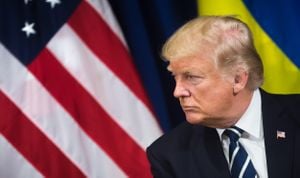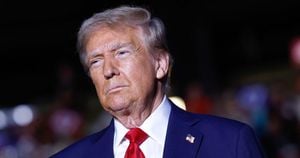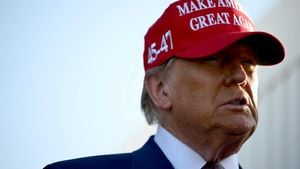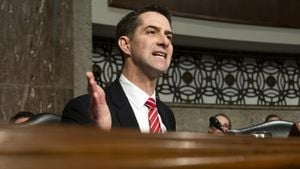Sean "Diddy" Combs is embroiled in serious legal turmoil as U.S. District Judge Arun Subramanian recently ruled against the use of handwritten notes seized from his jail cell. These notes, taken during a raid at the Metropolitan Detention Center (MDC) in Brooklyn, have sparked debates over attorney-client privilege and the potential for witness tampering. Combs, who has been charged with serious offenses including racketeering conspiracy and sex trafficking, has vehemently denied these allegations, asserting all his interactions were consensual.
The conflict surrounding the notes began when federal prosecutors argued they contained evidence of illicit activities, such as plans to obstruct justice by paying off potential witnesses. Prosecutor Mary Slavik asserted during the court proceedings, "A witness was paid off and finding dirt on two different victims is not privilege." This claim contradicts Combs' legal team, who argue the notes discuss defense strategies and witness preparation, protected by attorney-client privilege.
During the Oct. 28 raid, agents seized various materials, including twenty pages of notes, asserting these documents revealed significant misconduct. The prosecutors are skeptical about the claim of privilege, presenting their case as one of urgency due to the nature of Combs' charges. They contend the materials are relevant to the investigation and can be used as evidence against him.
Agnifilo, Combs' lead attorney, contended the seizure of the notes was justified and called the prosecutors’ actions "a complete institutional failure." He emphasized the constitutional rights of Combs and argued vehemently against the prosecution's use of these documents, stating the evidence should not have been retrieved without proper oversight or regard for their legality.
Adding to the complexity of this case, Combs has faced multiple denials for bail, as judges express concern over the possibility of him tampering with witnesses. He has offered substantial financial backing, including a $50 million bail option associated with his real estate holdings, but insists he is innocent of the charges against him. The pressure is mounting as each court session reveals new details and intensifies the scrutiny on his actions and the prosecution's methods.
While the investigation proceeds, the court has ordered preservation of the notes, with Judge Subramanian ruling the prosecution must not review the materials until the defense's privilege claims are fully considered. "Get rid of them," the judge instructed the U.S. Attorney’s office, reflecting the gravity of the situation and the importance of maintaining the integrity of the judicial process.
The case highlights significant issues within the legal system, particularly surrounding the protection of clients’ rights and the potential for misuse of materials obtained by federal agencies. The prosecution's strategy appears aggressive, seeking to leverage any hint of wrongdoing, but the defense remains steadfast, preparing to counter every assertion made against their client.
What lies ahead for Sean Combs remains uncertain. With trial dates incoming and the stakes high, his legal team is gearing up for what could be explosive court battles over privacy, privilege, and the broader narrative surrounding his public persona. The fallout from this situation could reverberate across the entertainment industry, not just for Combs but potentially influencing how similar cases are treated moving forward.
This entire affair raises questions about the boundaries of legal privilege and the treatment of defendants within the criminal justice system, challenging what we have come to understand about fair trial rights and the ethical protocols governing attorney-client communications.
Whether the prosecution will manage to uphold its claims or if the defense will successfully shield Combs from the alleged za judicial overreach remains to be seen as the court proceedings continue. Each move by the lawyers involved adds another layer to this already complex situation, keeping audiences and the legal community alike on edge.
Combs, once seen as untouchable within the realms of hip-hop and entertainment, now finds himself at the center of legal storms fueled by accusations of manipulation and exploitation. The celebrity culture, laden with its own pressures and expectations, intertwines with the judicial processes, showcasing how intertwined entertainment and law can become.
Sean "Diddy" Combs claims to navigate through these turbulent waters, emphasizing his innocence and challenging the prosecution at every turn. Still, questions linger and the public waits with bated breath to see how this will all pan out. Will he manage to turn the tide back in his favor, or will this represent one of many turning points in the history of celebrity legal battles?



